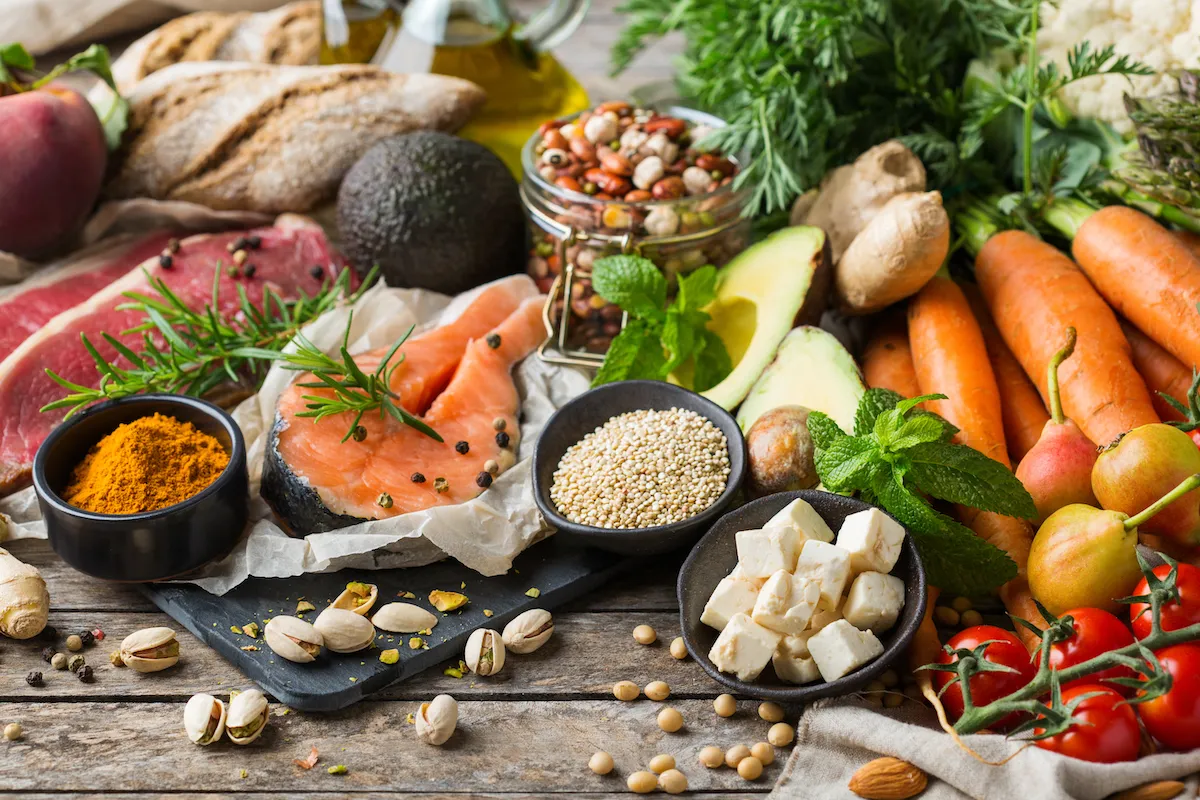
5 Foods That Can Help Prevent Memory Loss
In our fast-paced world, cognitive health is becoming increasingly important. Memory loss, often associated with aging, can also be influenced by various factors such as lifestyle, diet, and genetics.
While genetics are beyond our control, our diet is something we can modify to support brain health. Incorporating specific foods into our daily meals can play a crucial role in preventing memory loss and maintaining cognitive function. In this article, we will explore five foods that help with memory.
1. Blueberries: The Brain Berry
Blueberries, sometimes referred to as “brain berries,” are not only delectable but also brimming with antioxidants and phytochemicals that may support brain health. While they have a rightfully earned reputation as a “superfood” due to the vast array of health benefits they provide, their link to increased memory retention stands out.
A study published in the journal “Free Radical Biology and Medicine” highlighted the impact of blueberry consumption on improving memory and cognitive function in older adults. These little berries are rich in flavonoids, particularly anthocyanins, which have been associated with enhanced brain signaling and improved memory performance.
Moreover, blueberries have anti-inflammatory properties that can contribute to reducing oxidative stress and neuroinflammation, factors that are linked to cognitive decline. Incorporating blueberries into your diet, whether in smoothies, yogurt, or as a standalone snack, may offer a delightful and effective way to bolster memory.
2. Fatty Fish: Omega-3 Powerhouses
Fatty fish like salmon, mackerel, and trout are renowned for their high content of omega-3 fatty acids, particularly docosahexaenoic acid (DHA). Omega-3 fatty acids are essential for brain health, as DHA is vital in building brain cell membranes and reducing inflammation. Studies have shown that regular consumption of omega-3 fatty acids can slow down cognitive decline and potentially lower the risk of developing Alzheimer’s disease.
A review published in the journal “Nutrition Reviews” emphasized the importance of omega-3 fatty acids in maintaining cognitive function, memory, and overall brain health. Including fatty fish in your diet two to three times a week can provide a consistent source of these beneficial fats and contribute to optimal brain function.
3. Turmeric: The Golden Spice of Memory
Turmeric, the vibrant yellow spice commonly used in Indian cuisine, such as curry, contains a potent compound called curcumin. Curcumin, the active compound in turmeric, has gained attention for its anti-inflammatory and antioxidant properties, which have the potential to combat neuroinflammation and oxidative stress – two factors that contribute to memory decline. Some studies suggest that curcumin may even help clear the amyloid plaques that are characteristic of Alzheimer’s disease.
Research published in the journal “Annals of Indian Academy of Neurology” explored the neuroprotective effects of curcumin and its potential to delay or even reverse brain diseases and age-related cognitive deficits. Incorporating turmeric into your diet, whether in curries, teas, or even as a supplement, may offer a flavorful way to support brain health and a potential new way to try a food that helps with memory.
4. Dark Leafy Greens: Nutrient-Rich Brain Boosters
Dark leafy greens, such as spinach, kale, and Swiss chard, are nutritional powerhouses that offer a wide array of vitamins, minerals, and antioxidants essential for brain health. They are particularly rich in folate, vitamin K, and beta-carotene, which are linked to improved cognitive function and reduced risk of neurodegenerative diseases.
Folate is particularly interested in preventing memory loss, as it is crucial for the production of neurotransmitters involved in memory and mood regulation. Folate plays a vital role in breaking down homocysteine, an amino acid that, when elevated, is associated with an increased risk of cognitive impairment. Including a variety of dark leafy greens in your salads, smoothies, and cooked dishes can give your brain the nutrients it needs to thrive.
Additionally, leafy greens are rich in vitamins C and E, which both exhibit antioxidant properties that protect brain cells from oxidative stress. A study published in the journal “Frontiers in Aging Neuroscience” suggested that a diet high in leafy greens and other folate-rich foods may contribute to maintaining cognitive function as one ages.
5. Nuts and Seeds: Bite-Sized Brain Boosters
Nuts and seeds are convenient and versatile snacks that can significantly boost your brain health. Walnuts, almonds, flaxseeds, and chia seeds are rich sources of healthy fats, antioxidants, and essential nutrients. They are excellent sources of vitamin E, an antioxidant that helps protect brain cells from oxidative stress. Additionally, nuts and seeds contain healthy fats, including monounsaturated fats and omega-3 fatty acids, which support brain function and promote good blood flow to the brain. Walnuts, in particular, have been associated with improved cognitive performance. Adding a handful of nuts and seeds to your daily routine can easily support your memory.
A study published in the journal “Frontiers in Aging Neuroscience” revealed that regular nut consumption was associated with better cognitive function and a reduced risk of cognitive decline in older adults. Additionally, the antioxidants found in nuts and seeds help combat oxidative stress, contributing to the overall well-being of brain cells.
Our dietary choices can play a pivotal role in the quest for optimal cognitive health. The foods we consume are crucial in shaping our memory function and brain health as we age. By incorporating foods rich in antioxidants, omega-3 fatty acids, and essential nutrients, we can provide our brains with the tools they need to resist memory loss and maintain cognitive function. Blueberries, fatty fish, turmeric, dark leafy greens, nuts, and seeds are just a few of the foods that help with memory. While these foods are not a guaranteed solution, they contribute to an overall healthy lifestyle that can make a significant difference in preserving your precious memories as you age. And with staff dedicated to ensuring a healthy and complete diet, the Mission at Agua Fria Senior Living is excited to help you along the way!